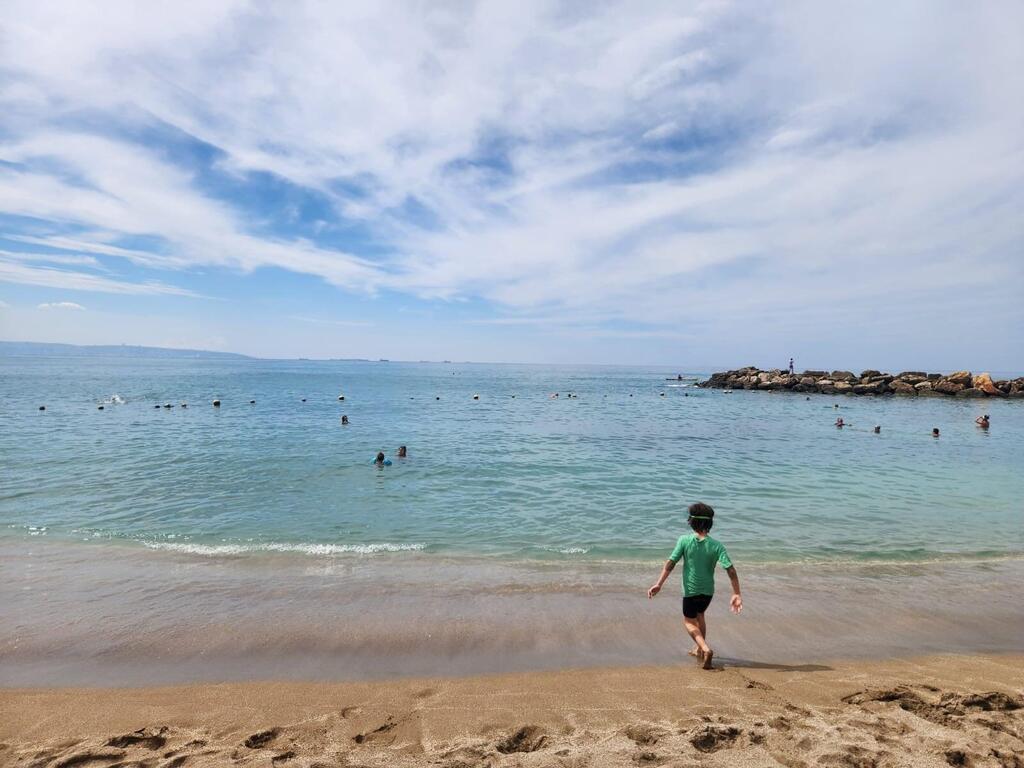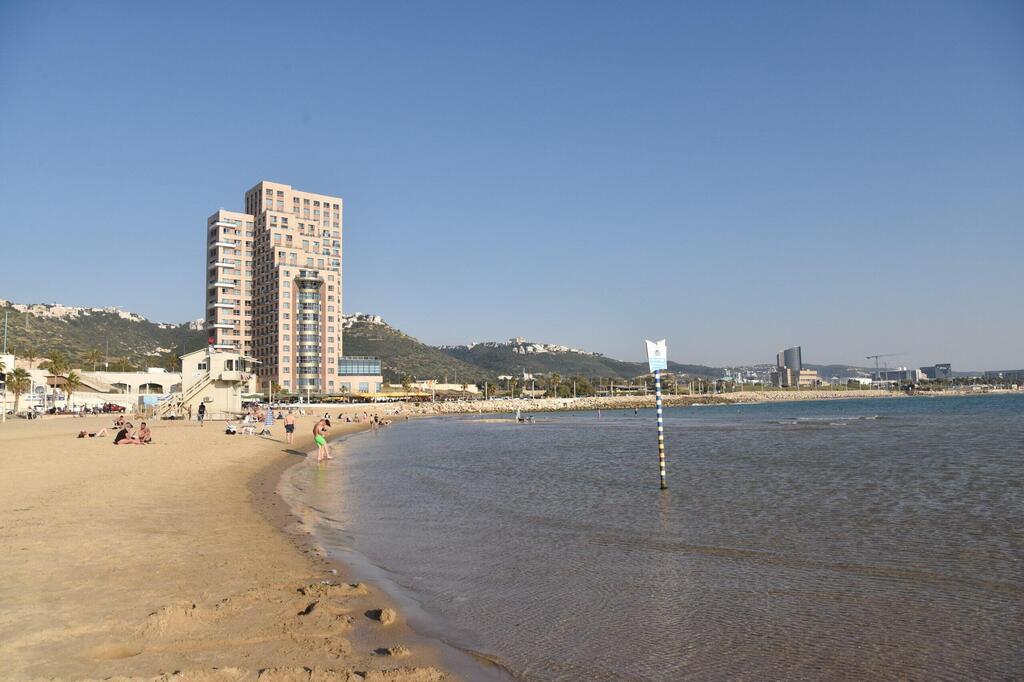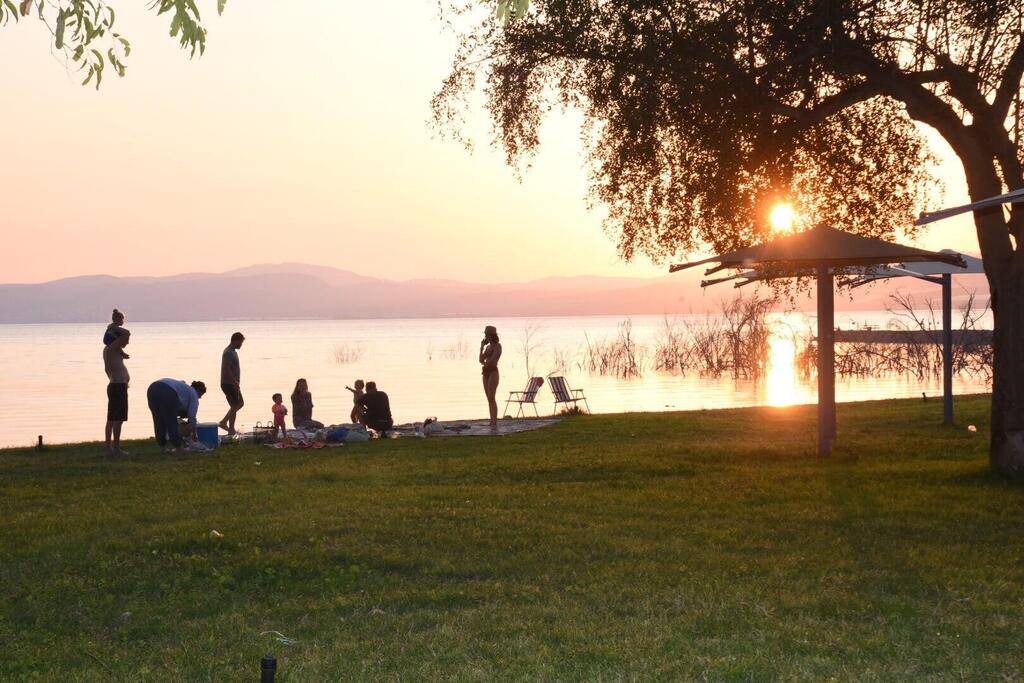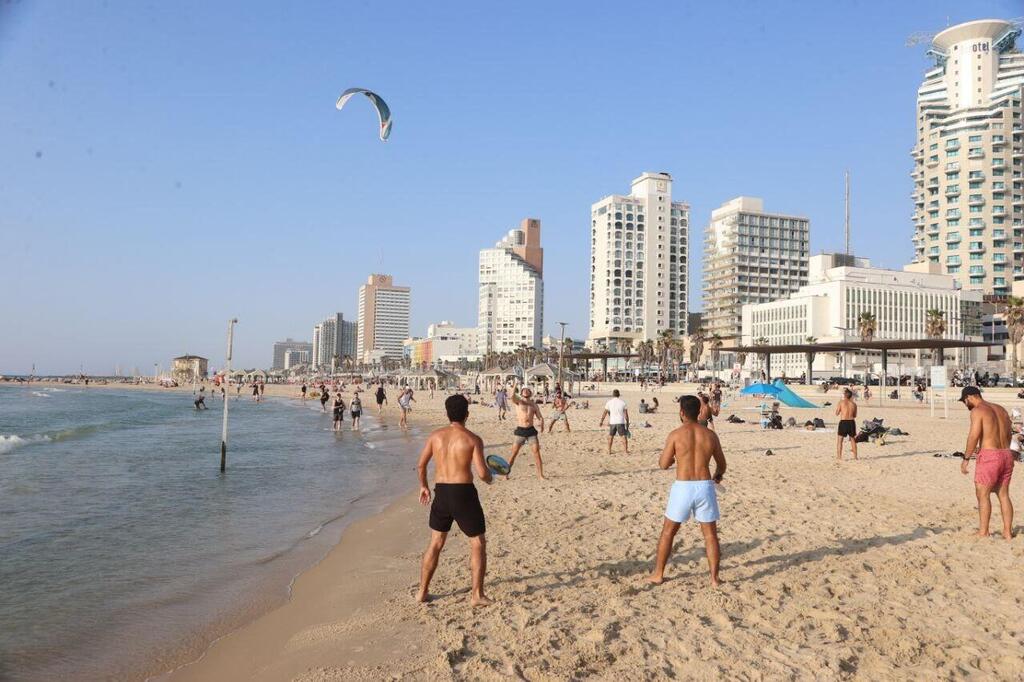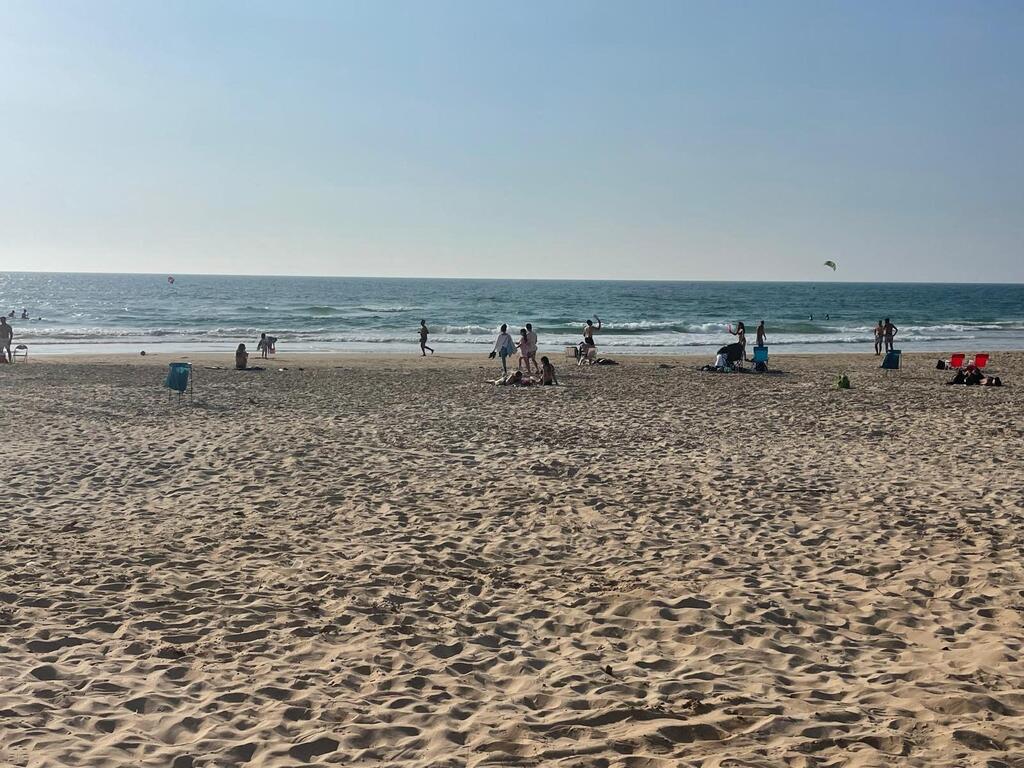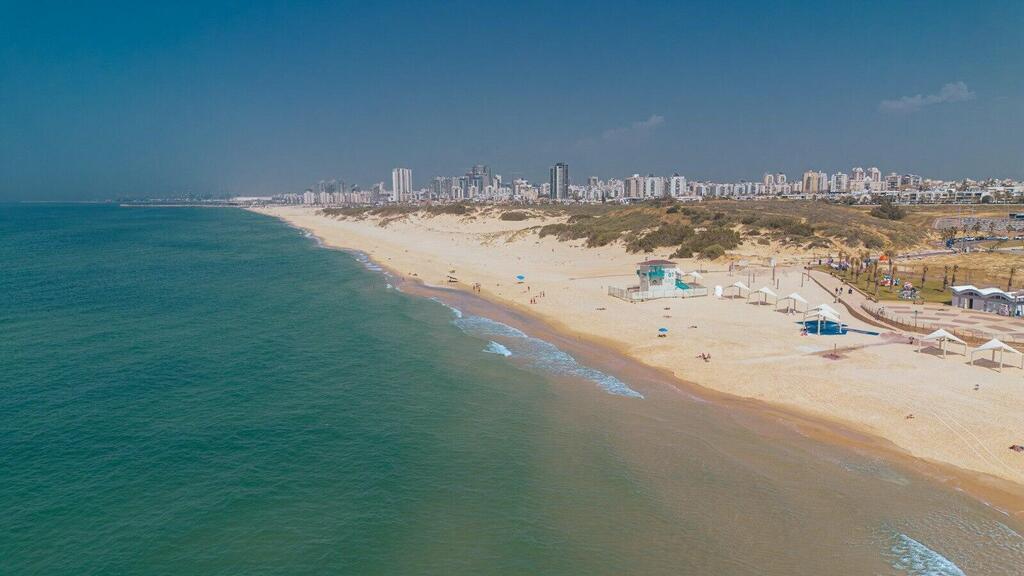Getting your Trinity Audio player ready...
Israelis didn't wait for any formal declaration to start rushing to the seaside as temperatures rose; nevertheless, the swimming season is underway with 157 beaches on the Mediterranean, Red Sea, Dead Sea and Sea of Galilee open to the general public.
The 2023 Clean Beach Index from the Ministry of Environmental Protection indicates that this was the cleanest year since the inception of these measurements 18 years ago: 90.91% of the beaches were deemed "clean" or "very clean" for at least 70% of the year. Coastal authorities that achieved a "clean" or "very clean" status include Nahariya, Acre, Haifa, Tirat Carmel, Mateh Asher, Emek Hefer, Herzliya, Bat Yam, and those managed by the Nature and Parks Authority.
However, given the ongoing war, the reliability of this index is questionable this time. Mor Gilboa, CEO of the Tzalul environmental association, points out that "the Ministry of Environmental Protection suspended the Clean Beach Index during the war months, so we can't be sure whether the authorities have been cleaning the beaches or letting waste accumulate at sea. During our volunteer beach cleanups, we gathered hundreds of kilograms of waste."
Although the launch of the bathing season is a cause for celebration, it's uncertain for how long we will be able to enjoy the beaches as they currently appear. "Israelis now have access to only a third of the available coastline, translating to less than a square meter of beach per person," states Amit Bracha, CEO of the Israel Union for Environmental Defense. "The vanishing beaches are a growing concern, particularly in an era of climate crisis."
Some of the swimming beaches are operated by the Nature and Parks Authority, which charges an entry fee. Research conducted by the authority in the Mediterranean Sea indicates an increase in fish populations and greater biodiversity among invertebrates. "We hope the public will work with us to protect endangered species," states Dr. Ruth Yahel, a marine ecologist at the authority. The amenities at beaches have also evolved; now, nearly every beach features a selection of restaurants, cafes, and other attractions.
"For instance, Neurim Beach in Emek Hefer hosts a surfing club and offers a range of activities aimed at enhancing both physical and mental well-being, while the beaches in Tel Aviv are bustling with ball games and tournaments. Furthermore, those wishing to overnight at the beach are no longer required to pack a sleeping bag: at Doga Beach on the Sea of Galilee, managed by the Kinneret Cities Association, visitors have the option to stay in caravans, air-conditioned tents, basalt cabins, or even luxury glamping suites.
Shavei Zion Beach, located in Western Galilee, is clean, well-maintained and handicap accessible, Ge'ula Beach in Tel Aviv is conveniently located near public transportation and kept clean by barring entrance with disposable utensils, Carmel Beach in Haida is clean and handicap accessible, Rishon Lezion Beach is clean and allows free parking for city residents, Doga Beach in the Sea of Galilee is handicap accessible and has some small sunshades for those looking to avoid getting fried, Ein Bokek Beach in the Dead sea is clean and has excellent parking spaces and Be'er Sheva Beach in Ashdod is handicap accessible and pricing for food is under watch to avoid price gouging for hungry visitors.
Several important tips for the summer:
- Do not enter the beach without a lifeguard.
- Listen to the instructions of the lifeguards on the beach; they are there to keep you safe.
- Do not enter the water before or after designated swimming hours.
- If you are unsure where it is permitted to swim, ask a lifeguard.
- Teach young children that if they get lost, they should raise their heads and approach a lifeguard.
- Keep the beach clean.
- Security is a crucial issue this year, and we ask everyone to be alert to their surroundings and report any suspicious object or person to the municipal center, inspectors, or the police.



